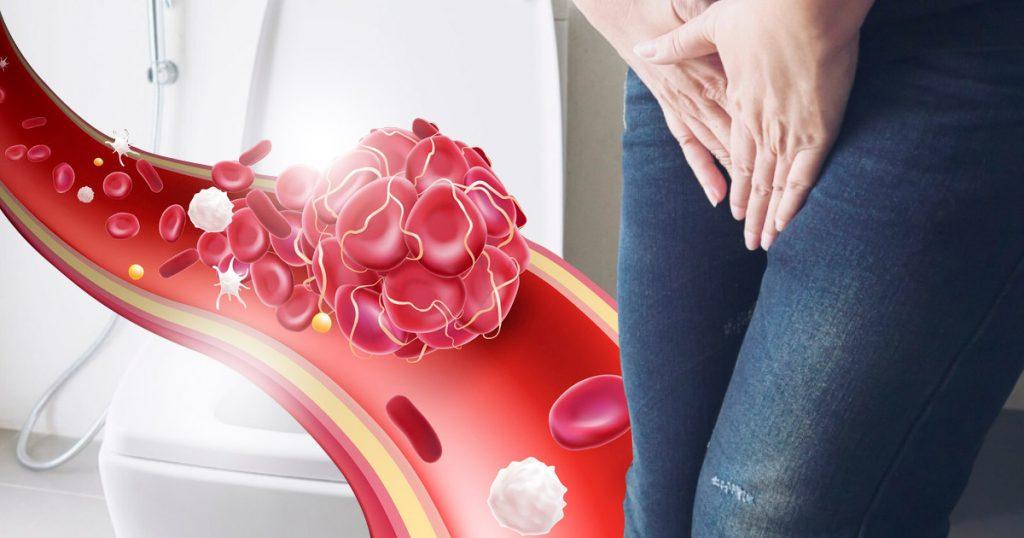Checking your urine is an important way to keep an eye on your health. The color, clarity, and consistency can give you clues about what might be going on in your body. For example, clear or light yellow urine usually means you’re well-hydrated. Dark yellow or amber urine might suggest you need more fluids. Brown urine can point to liver problems, and cloudy urine could mean you have a urinary tract infection (UTI).
A study by the Urology Care Foundation shows that changes in urine color and appearance can signal upcoming health issues. One of the more worrying signs is finding blood clots in your urine, especially if you’re not menstruating. This condition, called hematuria, needs immediate medical attention to find out what’s wrong and how to treat it.
What Are Blood Clots?
Blood clots are thickened masses of blood that form when blood cells stick together. This process helps stop bleeding when you’re hurt. However, finding blood clots in your urine means something might be wrong.
What do blood clots in urine mean?
Blood clots in urine indicate unusual bleeding somewhere in your urinary system. This is a sign that you should see a doctor to find out what’s causing it.
What do they look like?
In urine, blood clots often appear stringy or worm-like because they pass through narrow tubes in the urinary tract. They can also look like small, reddish or dark chunks floating in the urine.
Possible Causes and Concerns
Several things can cause blood clots in urine:
- Urinary Tract Infections (UTIs): UTIs can cause swelling and bleeding, leading to blood clots. You might also feel pain when you pee, need to pee often, or see cloudy urine.
- Kidney Stones: These hard deposits can scrape and irritate the urinary tract, causing bleeding and clots.
- Injuries: Physical injuries to the pelvic area can cause internal bleeding, resulting in blood clots in the urine.
- Cancer: Tumors in the bladder, kidneys, or prostate can bleed, leading to blood clots.
- Medications: Some drugs, like blood thinners, can make you more likely to bleed and form clots.
What to Do if You Spot Blood Clots in Your Urine
Seeing blood clots in your urine can be scary, but it’s important to stay calm and check your symptoms. Here’s a guide on what to do based on how you’re feeling:
1. If You See Blood Clots Without Pain or Other Symptoms
- Keep an Eye on It: If you notice blood clots but don’t feel any pain or other symptoms, it might not be an emergency. However, it’s still important to watch for any changes.
- Take Notes: Write down how often you see the blood clots, their color, and their size. Also, note any new symptoms that might appear, like changes in how often you need to pee.
- Make a Doctor’s Appointment: Even if you’re not in pain, it’s a good idea to see a doctor. They can run tests to find out why this is happening and suggest treatment if needed.
2. If You See Blood Clots With Mild Symptoms
- Drink Water: Staying hydrated can help flush out your urinary system. Sometimes, this can make mild symptoms go away.
- Manage Pain: Over-the-counter pain relievers can help with mild discomfort. Follow the instructions on the package carefully.
- Call Your Doctor: While drinking water and taking pain relievers, get in touch with your healthcare provider. They may give you more advice or prescribe antibiotics if they think you have an infection.
3. If You Have Severe Symptoms
- Severe Pain: If you experience severe pain when urinating, constant pain in your groin or lower back, or if you can’t pee, get medical help right away. These symptoms might mean you have kidney stones or a serious infection that needs quick treatment.
- Other Serious Symptoms: If you notice worrying signs like fever, leg swelling, deep bone pain, fatigue, or loss of appetite, these could be signs of serious health issues. Seek immediate medical attention.
When to Seek Help for Blood Clots in Urine
Immediate Help
If you have severe pain or trouble peeing, get medical help right away. These could be signs of serious problems like kidney stones or bad infections that need quick treatment. Head to the nearest emergency room if you need to. Getting help fast can stop things from getting worse and make sure you get the care you need.
Prompt Doctor Visit
Even if your symptoms are mild, it’s important to see your doctor as soon as you can. Blood clots in urine can mean different health issues, such as infections, kidney stones, or even cancer, that need a doctor’s check-up. Your doctor will likely run tests to find out why this is happening and suggest the right treatment. Finding out early can make treatment more effective and improve your health.
Follow-Up Care
After seeing your doctor, follow their advice closely. This might include taking prescribed medications, having more tests, or making changes in your lifestyle. For example, if you have an infection, you may need to take antibiotics and drink lots of fluids. If you have kidney stones, your doctor might suggest changing your diet or having procedures to remove the stones.
Listening to your doctor’s advice helps make sure the problem is treated right and lowers the risk of it coming back. Also, regular follow-up visits might be needed to keep an eye on your condition and adjust your treatment as needed.
